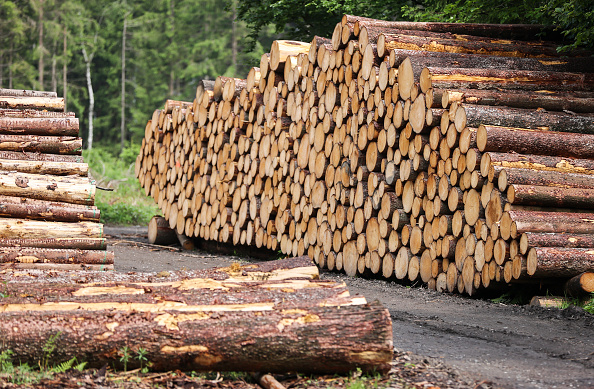Never like now the word inflation haunts the minds of traders, investors and consumers. But has the flare-up in commodity prices already died out? It is the question that the market is suddenly asking itself.
Not even three months ago there was talk of commodities super cycle, in the wake of the strong rallies that were affecting the sector: rallies due to expectations of a strong recovery in demand thanks to the exit of the global economy from the quarantine from the Covid-19 pandemic.
The boom in commodity prices was cited – still is – by the Fed and the ECB as the transitory phenomenon that was contributing to the sudden inflation growth.
There was also talk of the bullish impact it would have on the sector the energy transition.
In recent weeks, however, something has changed. On 10 May, the price of the three-month copper contract, traded on the London Metal Exchange, closed at $ 10,720 the ton, to the absolute record. Today, quotes travel below the $ 10.0000 mark.
Other commodities, such as the timber, among the raw materials that have collected the most powerful earnings, benefiting from the lockdown that has led many Americans locked up at home to decide to renovate and renovate their homes, if only to pass the time.
Well, as a Bloomberg article points out, timber prices plummeted by 40% from the peak tested in May: those listed in Chicago suffered an 18% thud last week alone, reporting the strongest weekly decline in history. A sharp slowdown, given the boom in timber prices that was characterizing the year, so strong as to make housing construction in the US expensive like never before.
Why this sudden turnaround?
The explanations relate to the dynamics of supply and demand: sawmills are accelerating their production (more supply); while potential buyers have evidently curbed their propensity to spend (less demand).
“Shorter-term prices adapt to the conditions of supply and demand – he explained, in fact, Marc Odo, portfolio manager of Swan Global Investments – Commodities such as agricultural products or timber may be subject to adjustments ”.
But the price of timber is symptomatic of a possible slowdown in US real estate market on the horizon? For some, yes.
“The bubble is starting to burst “, commented Gary Shilling, number one of A. Gary Shilling & Co, in an editorial that was published in Bloomberg Opinion.
In his opinion, there are signs of a slowdown in the sector: among these, the increase in the number of houses for sale on the market, the decline in building permits, and consumers’ reluctance to buy homes that are now priced high.
It must be said that, during the period of the pandemic, the US real estate market had been affected by robust demand, mainly from Americans looking for new homes away from densely populated urban centers, where the contagion rate was higher. Low mortgage rates were certainly a contributing factor to home purchases.
But now the situation is changing and, although many Americans still prefer to live outside the city, many more will return to urban centers. Also, not everyone wants to buy homes at these prices.
Credit Suisse: Taking profits on commodities
In this context, look at the report signed by Swiss credit. In the analysis “Taking profits on raw materials”, we read that “the Investment Committee” of the Swiss banking giant “has decided to take profit” on the sector.
Below, the reason for this decision:
“Commodities, as measured by the BCOM index, for example, grew by 21.5% YTD, with oil and copper rose by more than 30% each. Technical analysis suggests that the rally could extend further, but we think it prudent to take a profit on this view based on strength. While base metals are strongly supported, with the world (excluding China) currently recovering from COVID-19 crisis, demand from China is slowing. China’s business cycle is the main determinant for base metals, and therefore we believe there is some consolidation potential in these commodities. Meanwhile, precious metals are favored by inflation surprises, but how central banks react to these surprises holds these metals in check. In agriculture, responses are coming from the supply side and we expect market conditions to weaken later on, barring surprises in the weather during the summer ”.
Credit Suisse points out, however, that “oil remains very strong for now “, specifying that “discipline in profit taking is important when it comes to rebalancing. It allows investors to redirect capital towards better valued investment opportunities. For investors who are underweight equities and interested in commodity-related investments, we highlight that materials and mining stocks are a more cost-effective way to gain exposure. To carry out
an optimal investment with a view to a period of economic recovery and reflation, we believe it is essential to have sufficient equity exposure in well diversified portfolios ”.
Ultimately, in the “Risk Warnings” session, Credit Suisse points out that “commodity transactions carry a high degree of risk and may not be suitable for many private investors. The amount of loss due to market movements can be substantial or even result in a total loss ”.
